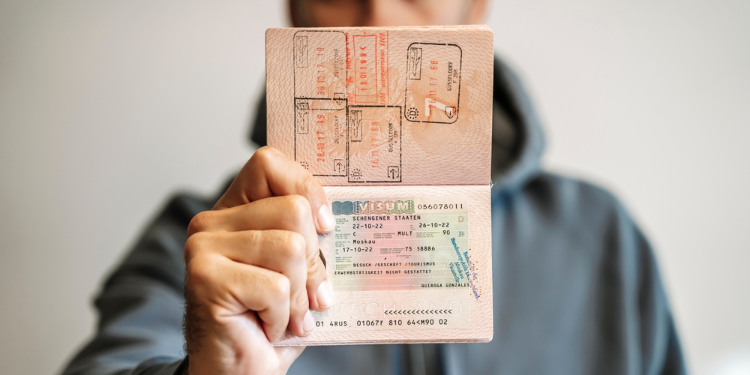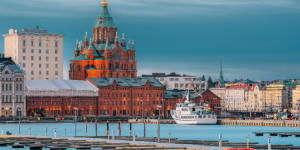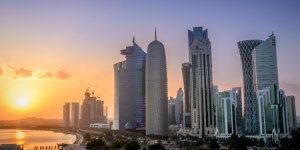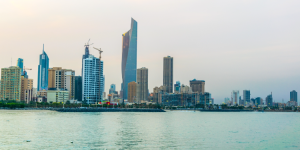
Since the pandemic, embassies are overwhelmed. As a result, formalities are taking more time, and people must often be very patient. That's especially the case in some countries, where obtaining a visa is a real obstacle course. Which countries have the longest delays in granting visas or visa interviews? How does this affect moving abroad plans?
More than a year's wait to be able to travel to the United States
For some, traveling to the United States is a real test of patience. Indians have to wait an average of 629 days to get a visa interview. It's even worse for Mexicans: 767 days. In contrast, a Japanese citizen only has to wait 18 calendar days, one of the shortest waiting times. French nationals need to wait for a year and a half (520 days), and it's exactly one year for Brazilians. Emiratis, from the United Arab Emirates, have to wait for 347 days. Those who have somewhat shorter waiting times are Swiss nationals (179 days), Moroccans (100 days), South Africans (77 days) and South Koreans (57 days).
Since the reopening of American borders in November 2021, the turnaround time for visa processing keeps getting longer, with stark differences between countries. This delay affects both tourist trips and business trips. It also concerns all travelers who need a long-term visa (of more than 3 months) or a visa to stay in the United States. Completely overwhelmed, American embassies have communicated that they are not being able to handle the influx of applications. These delays penalize all applicants who are not eligible for the Electronic System for Travel Authorization (ESTA). The ESTA program allows citizens of the 38 participating countries of the Visa Waiver Program to benefit from a visa exemption for short trips (of a maximum of 90 days).
While the pandemic explains some of the difficulties embassies are facing, part of the blame also lies with the consequences of Trump's politics. How to explain that a Mexican citizen, who is a neighbor of the United States, needs to wait 749 days more than a Japanese national? The Trump administration has complicated visa procedures for some countries in order to put the brakes on the number of applications from these countries. A third explanation can be found in budgetary cuts and staff shortages.
Schengen visa: increasingly long delays
The Schengen Visa allows people to travel in all member states of the Schengen Area. For the record, the Schengen Area is the largest area worldwide that allows free movement without passports. Most countries in the European Union (EU) are also members of the Schengen Area. A person who holds a short-stay Schengen visa (less than 90 days) can freely enter and move about all of the member states of this area. This visa concerns all foreign nationals of non-member states who do not benefit from a visa exemption in countries of the Schengen Area.
In principle, the processing time for a visa is 72 hours. In practice, however, it can take 15 days or more than a month. The waiting time varies from country to country. This delay has gotten worse since the pandemic.
The waiting time also depends on the type of visa. For a short-term visa (less than 90 days), it's recommended to start your visa application at least 6 months before the intended date of departure. For a long-term visa (more than 90 days), it's recommended to apply between 3 months and 15 days prior to departure. But here again, so much depends on your country of origin or departure. For example, French authorities clarify that the waiting time depends on the country of origin or departure as well as whether you are a special case. The authorities provide an estimated waiting time of 15 days to 6 weeks for short-term visas and a waiting time of 3 weeks to 2 months for long-term visas.
Consequences for moving abroad plans
The longer waiting time to obtain a visa can slow down, or even completely stop, a moving abroad plan. It's hard to plan a trip more than a year in advance without the certainty of even obtaining a visa. That's because a visa interview doesn't necessarily translate into visa approval. All of this means a longer wait and additional stress for thousands of prospective travelers. Host countries are also losing out here. Apart from the bad press, they're also missing out on all the money that international travelers could spend in their country. It's sending the wrong signal at a time when tourism is struggling to recover.
It's the same situation when it comes to business trips, which are equally affected by longer waiting times. In the long run, some professionals could even abandon certain regions and shift their businesses to countries with more open borders and simple entry conditions. It is another bad point for the concerned countries at a time when economies around the world are competing to attract international talent.
People don't talk enough about the psychological consequences. The pandemic has separated thousands of families. For many, Covid has been traumatic. Imposing excessively long waits right after borders were reopened is like rubbing salt on the wounds for many. Besides, these different waiting times create a hierarchy among nationalities. Expatriation projects, already delayed by Covid, are once more impeded by administrative backlogs and political decisions. In the United States, people are starting to voice out angrily against these malpractices. They remind everyone that, before the pandemic, getting a visa interview would barely take a week. Businesses in the tourism sector are demanding an easing of visa restrictions. They are proposing that visa interviews be carried out online in order to speed up the process.



















